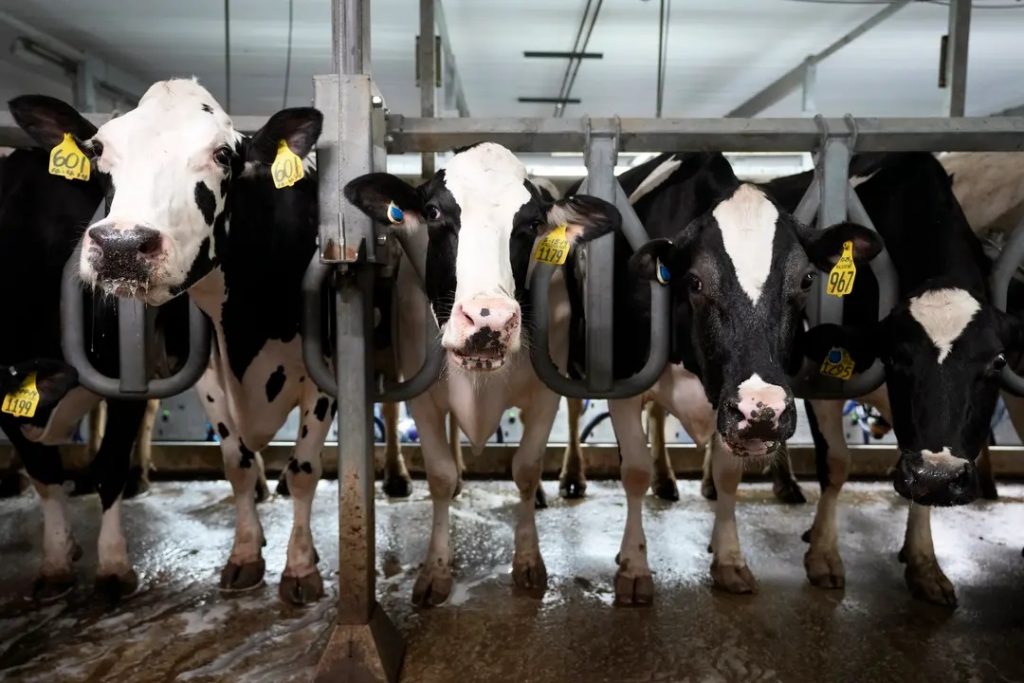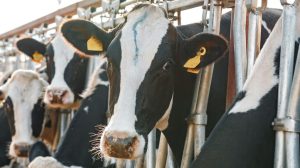
As avian flu cases continue to rise in commercial dairy farms and spillover into human infections, the Colorado Department of Agriculture (CDA) is now requiring all licensed farmers to test their herds weekly for signs of the virus.
The highly pathogenic avian flu has circulated in Colorado since spring 2022. During the first two years of the outbreak, the virus was mainly transmitted through wild and domestic bird populations, leading to temporary egg shortages and price increases. Occasional spillover into wild mammals occurred but was uncommon.
This year, however, avian flu began spreading in domestic dairy herds nationwide. The first case among Colorado cattle appeared in April. Since then, nearly 50 Colorado cows have tested positive for the virus.
Due to the ongoing spread among cattle, the Colorado Department of Agriculture and the state Department of Public Health & Environment announced Tuesday that it is now requiring dairy farmers to submit weekly samples for testing. Cows bred for meat are not currently required to test, as avian flu cases have only been confirmed among dairy cattle.
“We have been navigating this challenging, novel outbreak of HPAI in dairy operations for nearly three months in Colorado and have not been able to curb the spread of disease at this point,” said Maggie Baldwin, Colorado’s State Veterinarian. “We have seen devastating impacts of this disease not only to our dairy industry, but our poultry industry as well. With the strong support of the dairy and poultry industries, we feel that this is the best next step in order to protect these vital industries in our state.”
Earlier this month, six farmworkers tested positive for avian flu after reporting relatively mild symptoms. The workers had been culling a flock of infected poultry in Weld County. The cases account for most of the cases among humans reported nationwide.
“Colorado has had two spillover events, confirmed through genomic sequencing, and one presumptive spillover event from dairy operations into commercial poultry operations that have resulted in the death and depopulation of more than 3.2 million domestic chickens during the month of July,” a CDA release said.
Officials have maintained that the risk to the general public remains low, and that human-to-human spread has yet to be detected. A Michigan Department of Health and Human Services study found that the virus is not causing asymptomatic infections in people.
Those infected with avian flu have been exhibiting mild symptoms, such as pink eye, and “common respiratory infection symptoms”.
You can now read the most important #news on #eDairyNews #Whatsapp channels!!!
🇺🇸 eDairy News INGLÊS: https://whatsapp.com/channel/0029VaKsjzGDTkJyIN6hcP1K

























